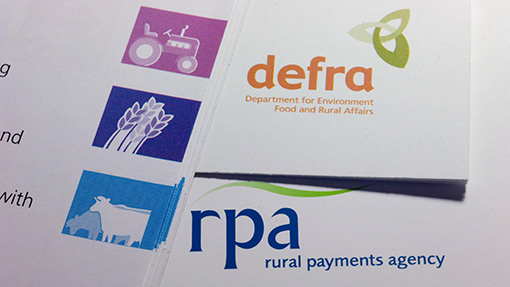MPs urge rethink on plans to scrap SFP paper forms

Abolishing paper forms for single farm payment applications will “send shockwaves through rural areas”, MPs have warned.
From 2015, the Rural Payments Agency (RPA) is planning to abolish paper-based applications with the introduction of a new “digital-by-default” online payments system.
The move means all farmers and land agents – even those in remote areas with poor broadband access – will be required to submit their applications electronically from 1 January 2015.
However, during a House of Commons debate on CAP implementation in England on Monday (7 July), MPs raised concerns about the RPA’s plans to abolish paper forms.
Anne McIntosh, chairwoman of the Environment, Food and Rural Affairs (Efra) committee, said she was concerned that RPA chief executive Mark Grimshaw had told MPs there would be no way that paper form applications would be made under the new CAP system.
“That will send shockwaves through rural areas,” said Ms McIntosh, Conservative MP for Thirsk and Malton.
However, by 2015-16, only 78% of her constituents will be covered by broadband, she added. “That means 22% of Thirsk, Malton, and Filey will have no access – I repeat, no access at all – to superfast broadband.”
Ms McIntosh warned that those farmers would be “severely disadvantaged” and it was “no comfort” to them to be told they should seek a satellite connection because they “simply cannot afford the prohibitive cost”.
She called on Defra and the RPA to clarify their stance over whether paper applications would be made available next year.
Ms McIntosh said: “If, as the RPA assured us, paper forms will not be available to submit, intensive tuition must be made available to those required to go digital from 1 January.”
Read more news on CAP reform
Helen Goodman, Labour MP for Bishop Auckland, said 40% of farmers in her constituency had no access to broadband.
Therefore she argued it was “absolutely essential” to retain a paper-based application system, especially for farmers without adequate broadband.
She said: “We know that five million people in this country do not have access to broadband. Until 100% of people have access to broadband, how can it make sense to have a totally online approach and not have a paper-based approach alongside it?”
She called on the RPA to extend the paper-based system for another five years until broadband is rolled out everywhere.
Former farm minister Sir Jim Paice said the current payment system was metaphorically “being held together by string and sticky tape” and was “completely obsolete” and needed changing.
However, he urged farm minister George Eustice to reconsider the RPA’s decision and allow farmers to continue to submit their SFP applications on paper “at least until they can access broadband”.
In response, farm minister George Eustice said the new digital system was necessary because the current system was “not fit for purpose”.
Adopting a “digital-by-default” approach would be simpler than asking farmers to “draw things on maps with pencil”, the minister added.
Mr Eustice pointed out that the government was investing £750m into Broadband Delivery UK to roll out faster broadband services.
And he defended the decision to scrap paper forms, saying: “We will be setting up a number of digital service centres right around the country, particularly targeted at those areas where there is a problem.
“Farmers will be able to physically take their information into an office, which will have privacy and be discreet and work with an RPA agent to enter that information on the system.
“That is the right decision for everyone. It is right for those farmers because it removes the risk of them getting penalties and disallowance.”
Last week, the RPA said it was “delighted” that more than two-thirds of farmers and land agents in England submitted their single farm payments online this year .
